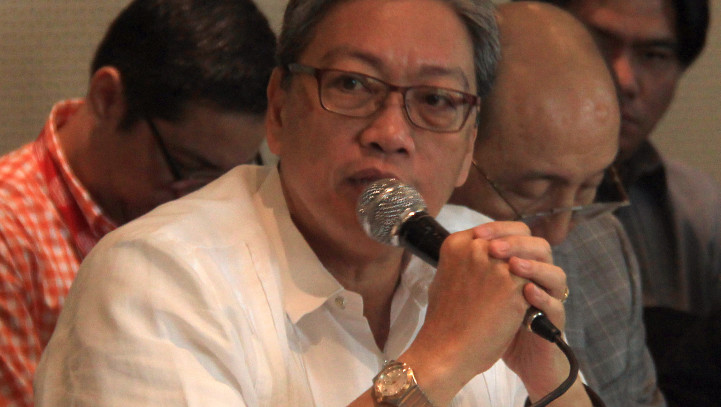Business leaders, academe & dev’t partners to form water alliance
The global water supply is on the brink of extinction.
The reason, according to the World Economic Forum (WEF), is due to the rapid increase of the world’s population and the alarming increase in water demand and consumption.
A study made by McKinsey & Company for the WEF, revealed that by 2030, the global water demand is expected to exceed supply by over 40%. Asia is not only the world’s most populous region but it also has the highest annual water withdrawal. The Philippines is withdrawing more than double the average world withdrawal of water per person per year. Yet, water scarcity is being experienced in many parts of the country.
Recognizing the role that the private sector plays in addressing the challenges on water security, the country’s top business leaders, representatives from the academe and the United States Agency for International Development (USAID) met recently to discuss the formation of an alliance that will help find solutions to this impending crisis.
Present in the meeting were PLDT Chief Executive Officer (CEO) Napoleon Nazareno, Energy Development Corporation (EDC) President and Chief Operating Officer (COO) Richard Tantoco, De La Salle University Water Research Center Head Luis Razon, Coca-Cola Philippines Public Affairs Vice-President Adel Tamano, CEMEX Philippines CEO Pedro Palomino, DOW Chemical Country Manager Robert Batungbacal, Manila Water Chief Operating Officer Ferdinand Dela Cruz, Maynilad Water Academy Head Dora Gamboa, USAID Dani Newcomb and USAID Be Secure Chief of Party Mona Grieser, to name a few.
“We hope to be the voice of the industry in advocating for the necessary policies which will address the challenges in water that the country is facing,” said Edgar Chua, country chairman of the Shell companies in the Philippines, and member of the Board of Trustees of Philippine Business of the Social Progress (PBSP).
AN INTERNATIONAL MOVEMENT
The water alliance that will be formed, was inspired by the success of the “CEO Water Mandate,” a partnership between the international business community and the United Nations. Launched in 2007, the partnership focuses on “developing strategies and solutions to contribute positively to the emerging global water crisis.” It is an international movement of companies working to address water scarcity and sanitation on the following areas: Direct Operations, Supply Chain and Watershed Management, Collective Action, Public Policy, Community Engagement and Transparency.
At the Philippine level, this alliance will craft a water agenda that is aligned with the national agenda, and will be the business sector’s contribution to addressing water security concerns in the country. In partnership with Philippine Business for Social Progress (PBSP) through the Be Secure project (Water Security for Resilient Economic Growth and Stability) of USAID, the Water Alliance is envisioned to become a platform for companies to collectively tackle the issues on water security and access.
THE STRATEGY
PBSP Executive Director, Mr. Rafael C. Lopa encouraged members of the alliance to figure out key interventions needed for the different components of the water ecosystem per geographical area. He said that each area may require a different strategy given available resources and other contributing factors. He stressed the importance of the alliance in aiding the creation of an enabling environment for investments to come in.
In order for the alliance to move forward, Chua cited four key points: 1) share best practices, 2) establish a baseline including water foot printing for companies, 3) convene and engage expert/research groups like the DLSU Water Research Center, Manila Observatory and OML Center – Science for Climate Resilient Communities to leverage from their different competencies, and 4) identify issues which are important for advocacy efforts and come up with a blueprint for addressing these water issues.
“In sharing best practices, PBSP can be the repository of the different companies’ best practices and technologies and share it with the alliance members and other companies for learning and adoption/replication. For the second point, we should know where we are and measure how we can improve. Let’s do things that are totally within our control,” he explained.
Dow Chemical Country Manager Robert Batungbacal volunteered to take on a subgroup that could study the water footprint of the manufacturing sector. He also urged the alliance to raise public awareness on the water security challenges in Metro Manila as well as the differences on water supply availability and accessibility in the provinces.
Chua also pushed for the expansion of the alliance into a wider industry association to include the beverage and BPO industry.
Meanwhile, USAID Be Secure project will provide experts to train companies on demand management to help them on long-term planning and in conducting water audit in buildings. PBSP, on the other hand, will facilitate workshops, organize training activities and bring companies together for industry-based dialogues.
-30-









